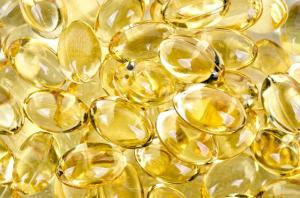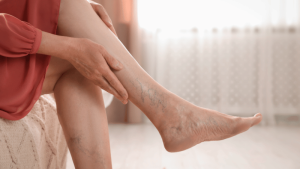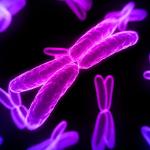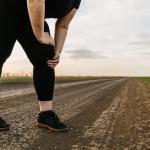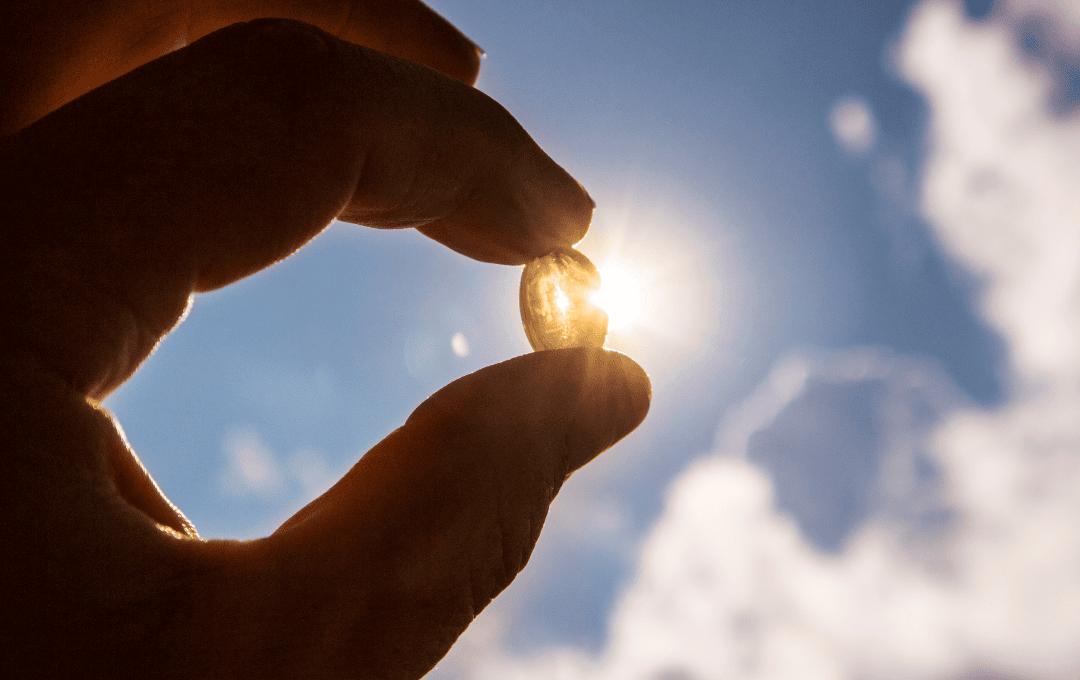
You may have heard before that low vitamin D causes issues with bone health. Without enough of this nutrient, your body doesn’t absorb the calcium and phosphorus required to build strong bones. But vitamin D is also important for vein health. Low levels can lead to issues with blood pressure, a higher risk of heart failure, and even vein damage.
On the other hand, getting plenty of vitamin D through your diet and lifestyle protects your blood vessels, which translates to a healthier heart, brain, and immune system.
Because healthy veins support good circulation — and healthy blood flow is needed for keeping all the tissue and organs in your body healthy — supporting your veins helps promote your overall wellness.
Stay Up-To-Date on How to Keep Your Veins Healthy
So, what happens to your veins when you have a vitamin D deficiency? And how do you know if your levels are low?
Read on to learn common symptoms of low vitamin D and how a deficiency might affect your veins and circulation.
Low Vitamin D Symptoms
Vitamin D plays multiple roles in the body. It’s important for healthy bones. It also supports the cells lining your blood vessels, smooth muscle cells, heart, and immune cells.
Studies have linked vitamin D deficiency with the development of several diseases, including osteoporosis, some cancers, autoimmune diseases, high blood pressure, and vascular diseases, including heart disease and chronic venous insufficiency (also known as vein disease).
If you have a deficiency, you might notice some of the following symptoms:
- Muscle pain
- Muscle weakness, especially in the thighs or upper arms
- Muscle spasms
- A sensation of “pins and needles” in the hands or feet
- Bone pain
- Hair loss
- Depression or sadness
- Fatigue
- Trouble sleeping
- Repeated infections
Some of the low vitamin D symptoms are similar to signs of poor circulation. For instance, the “pins and needles” sensation is a telltale sign of circulation issues. Paleness and muscles that feel weak when you walk can also indicate circulation issues.
This is because low vitamin D and poor circulation are often intertwined, as low levels impact the vessels that circulate blood through your body.
How Does a Vitamin D Deficiency Impact Vein Health?
Vein problems are one of the potential side effects of low vitamin D. Because issues with your veins, such as venous insufficiency and varicose veins, can also increase your risk for more serious health concerns, like blood clots and a weaker heart, it’s important to make sure you have healthy levels of vitamin D.
There are two primary ways that low vitamin D can impact your veins.
Inflammation
Vitamin D helps the body modulate inflammation, including in your veins. That’s why it, along with vitamin K, is one of the best vitamins for keeping your veins healthy.
Too much inflammation around the valves and vein walls can cause damage. When your vein valves don’t work properly, they can’t stop blood from flowing backward, enabling blood to pool in your leg veins. This damages the vein walls further by putting more pressure on vein walls.
As a result, veins can become twisted and enlarged. These are known as varicose veins. You might also notice other vein symptoms, like stiffness, leg pain, cramps, numbness, and restless legs.
Worried About Vein Disease? Take Our Symptom Quiz
Blood Vessel Stiffness
The other way low vitamin D can impact vein health is by making your blood vessels less elastic.
Vitamin D is known to benefit the heart and blood vessels. It has vasoprotective properties, protecting your veins and arteries from damage. It does this by restoring healthy levels of nitric oxide when they decrease.
Factors such as age, lack of exercise, a poor diet, smoking, and taking antibiotics can also cause your levels of nitric oxide to drop.
By restoring nitric oxide, vitamin D helps your veins and arteries stay toned and flexible, which promotes healthy blood flow and prevents hypertension.
Tips for Increasing Vitamin D
You can increase your vitamin D levels through sunlight exposure and eating vitamin D-rich foods.
- Exposing your skin to just 15 minutes of natural sunlight at least three times a week can increase your levels.
- Egg yolks, fatty fish like tuna, mackerel, and salmon, mushrooms, vitamin-D-fortified milk and cereal are all good sources of vitamin D.
Your doctor might also recommend taking vitamin D supplements to treat a deficiency.
But vitamin D is just one part of maintaining healthy veins. You can also ensure you’re getting enough exercise, eating a nutrient-packed diet, drinking more water, and scheduling regular vein health check-ups.
Make Sure Your Veins Are Healthy
It’s not always easy to recognize low vitamin D symptoms. Unfortunately, left unchecked, low levels can impact your veins and increase your chances of developing venous insufficiency, blood clots, and poor circulation.
At USA Vein Clinics, our vein doctors specialize in diagnosing and treating venous insufficiency. They can detect any existing vein damage and recommend a personalized treatment plan to support your vein health, giving you peace of mind that your vascular system is well cared for and ready to support your overall health for years to come.
Schedule a Consultation Online
Sources:
- Lips, Paul, and Natasja M van Schoor. “The effect of vitamin D on bone and osteoporosis.” Best practice & research. Clinical endocrinology & metabolism vol. 25,4 (2011): 585-91. doi:10.1016/j.beem.2011.05.002
- Krishna, Smriti Murali. “Vitamin D as A Protector of Arterial Health: Potential Role in Peripheral Arterial Disease Formation.” International journal of molecular sciences vol. 20,19 4907. 3 Oct. 2019, doi:10.3390/ijms20194907
- Kim, Do-Houn et al. “Vitamin D and Endothelial Function.” Nutrients vol. 12,2 575. 22 Feb. 2020, doi:10.3390/nu12020575
Medically Reviewed By:
Dr. Yan Katsnelson is a philanthropist, business owner, and highly skilled cardiac surgeon. He is the Founder and CEO of USA Vein Clinics, which is part of USA Clinics Group, the parent company of USA Fibroid Centers, USA Vascular Centers, and USA Oncology Centers, with more than 100 facilities nationwide. Dr. Yan has established himself as a strong advocate for accessibility and affordability of the most advanced medical care close to home. His mission is to create a positive experience for each patient with compassionate, personalized, and expert care.

